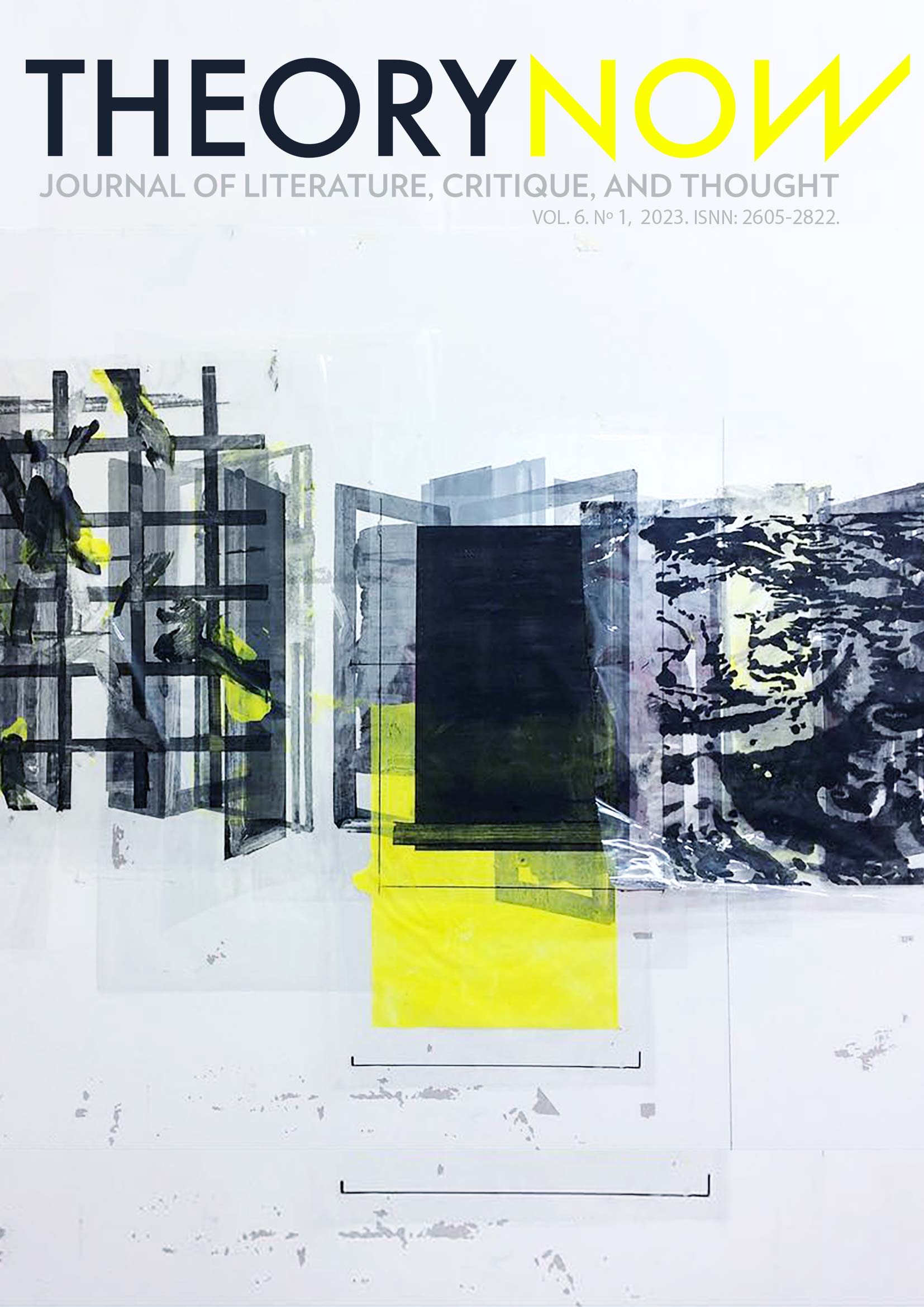Teoría (comparada) de la literatura: contra la literatura mundial del tiempo sin historia.
DOI:
https://doi.org/10.30827/tn.v6i1.26175Palabras clave:
Literatura comparada, teoría literaria, literatura mundial, Franco Moretti, Roland Barthes, Jacques Rancière, Michel FoucaultResumen
La literatura mundial ha devenido el objeto de estudio predilecto del comparatismo literario, que se ha visto obligado a revisar algunos de sus presupuestos metodológicos clásicos ante las modalidades inéditas de la producción y la circulación de los textos en el nuevo espacio global. El artículo revisa cómo la asunción por parte de los más conocidos teóricos de la literatura mundial de las prácticas y las herramientas de las ciencias sociales ha favorecido la revitalización de aquellas modalidades historicistas del comparatismo decimonónico que las diversas crisis de la literatura comparada parecían haber desestimado desde persuasivos argumentos textualistas. En particular, se aborda la analogía que Franco Moretti realiza entre el comparatismo literario y la ciencia histórica. Ante sus argumentos favorables a la sociologización de los estudios literarios, el presente artículo no sólo sugiere la idoneidad de retomar los argumentos favorables al textualismo de debates anteriores acerca del comparatismo sino que se argumenta, a partir de la lectura de la obra de Roland Barthes, Michel Foucault y Jacques Rancière, entre otros, que es en la operación historiográfica y la filosofía de la historia donde el comparatismo puede encontrar sus mejores herramientas de lectura crítica en el nuevo régimen global.
Descargas
Citas
Apter, Emily. Against World Literature. On the Politics of Untranslatability. Londres, Verso, 2013.
_____. “On Translation in a Global Market”. Public Culture, vol. 13, no. 1, 2001, pp. 1-12.
_____. “Untranslatables: A World System”. New Literary History, vol. 39, no. 3, 2008, pp. 581-598.
Balibar, Étienne. Cosmopolitique. Des frontières à l’espèce humaine. Ecrits III. Paris, La Découverte, 2022.
Barthes, Roland, “El discurso de la historia”. El susurro del lenguaje, Barcelona, Paidós, 1999, pp. 163-177.
_____. El grado cero de la escritura. Madrid, Siglo XXI, 1999.
Beecroft, Alexander. “La negociación de la literatura mundial”. New Left Review, no. 54, 2009, pp. 85-96.
Bernheimer, Charles. “The Bernheimer Report, 1993”. Comparative Literature in the Age of Multiculturalism, Charles Bernheim (ed.), Baltimore, John Hopkins University Press, 1995, pp. 39-48
Casanova, Pascale. La república mundial de las letras. Barcelona, Anagrama, 1999.
Damrosch, David. What is World Literature? Princeton: Princeton University Press, 2003.
David, Jerôme. “Proposition pour une macrohistoire de la littérature mondiale”. Où est la littérature mondiale?, Christophe Pradeau y Samoyaut, Tiphaine (eds.), París, Presses Universitaires de Vincennes, 2005, pp. 115-138.
De Certeau, Michel. “El lugar del muerto y el lugar del lector”. La escritura de la historia, Mexico, Universidad Iberoamericana, 2006, pp. 116-118.
Fornari, Emanuela. Líneas de frontera. Filosofía y postcolonialismo. Barcelona, Gedisa, 2017.
Foucault, Michel. La arqueología del saber. Buenos Aires, Siglo XXI, 1999.
Ginzburg, Carlo. El queso y los gusanos. El cosmos según un molinero del siglo XVI. 1976. Barcelona, Península, 1999.
Harootunian, Harry. “Some Thoughts on Comparability and the Space-Time Problem”. Boundary 2, vol. 32, no. 2, 2005, pp. 23-52.
_____. Marx after Marx. History and Time in the Expansion of Capitalism. New York, Columbia UP, 2015.
Hartog, François. Confrontations avec l’histoire. Paris, Gallimard, 2021.
Mezzadra, Sandro y Neilson, Brett. La frontera como método. Madrid, Traficantes de sueños, 2017.
Moretti, Franco. “Conjeturas sobre literatura mundial”. New Left Review, no. 3, 2000, pp. 65-76.
_____. “Más conjeturas sobre literatura mundial”. New Left Review, no. 20, 2003, pp. 83-92.
_____. La literatura vista desde lejos. Barcelona, Marbot, 2007.
_____. Graphs, Maps, Trees: Abstract Models for a Literary History. London, Verso, 2015.
_____. “Los caminos que llevan a Roma: Estudios literarios, hermenèutica, cuantificación”. New Left Review, no. 20, 2020, pp. 135-147.
Moretti, Franco y Sobchuk, Oleg. “Oculto a pleno vista”. New Left Review, no. 118, 2019, pp. 97-130.
Prendergast, Christopher. “La negociación de la literatura mundial”. New Left Review, no. 8, 2001, pp. 77-96.
Rancière, Jacques. Les Noms de l’Histoire. Essai de poétique du savoir. Paris, Seuil, 1992.
_____. El hilo perdido. Madrid, Casus Belli, 2015.
Ricoeur, Paul. La memòria, la historia, el olvido. Madrid, Trotta, 2010.
Spivak, Gayatri Chakravorty, Muerte de una disciplina. Santiago de Chile, Palinodia, 2009.
Wellek, René. “La crisis de la literatura comparada”. Literatura comparada: principios y métodos, María José Vega y Neus Carbonell (eds.), Madrid, Gredos, 1999, pp. 79-88.
Descargas
Publicado
Cómo citar
Número
Sección
Licencia
Theory Now Journal of Literature, Critique, and Thought es una publicación de acceso abierto e inmediato totalmente gratuita, tanto para lectorxs como para autorxs. Lxs autorxs no pagan ningún tipo de tasa por el proceso editorial de sus artículos. Permitimos la lectura, descarga, copia, distribución, impresión, búsqueda, enlace o reutilización con fines no comerciales de todos los trabajos publicados, siempre que se citen la autoría, la revista y el órgano editor. Todo material intelectual publicado en esta revista se encuentra protegido con una licencia de Creative Commons Reconocimiento-NoComercial .
Recomendamos encarecidamente la difusión de los artículos en redes sociales (Facebook, Twitter, LinkedIn, etc.) y científicas (ResearchGate, Academia.edu, etc.), repositorios institucionales universitarios y otros repositorios públicos, blogs y webs personales o institucionales, Google Scholar, ORCID, ResearchID, ScopusID, etc. En cualquier caso, la propiedad intelectual de los artículos y los posibles derechos económicos derivados de ellos son exclusivamente de sus autores.













